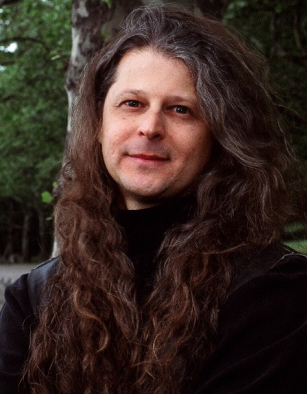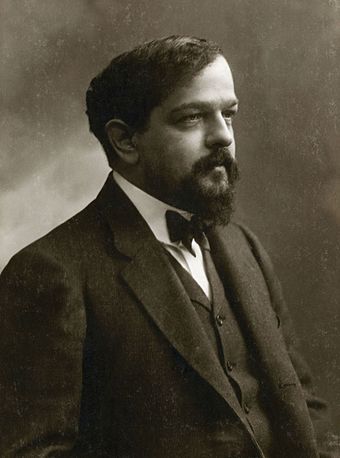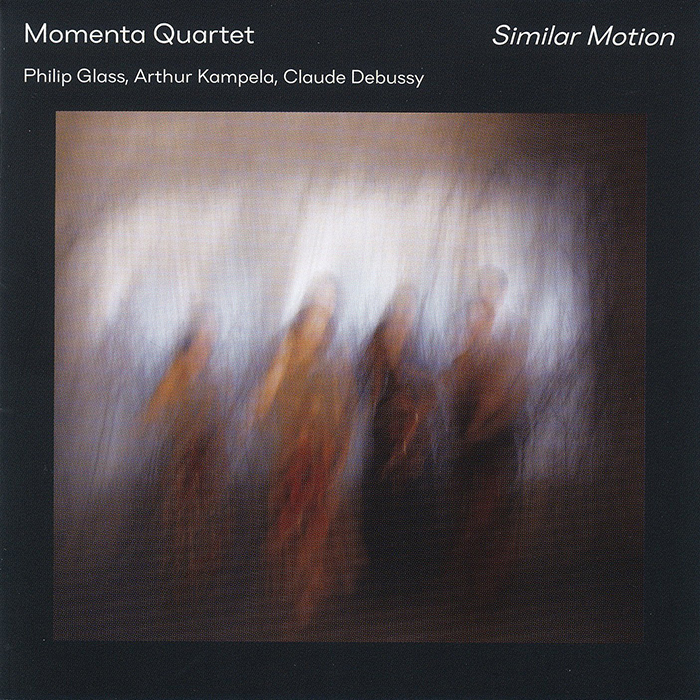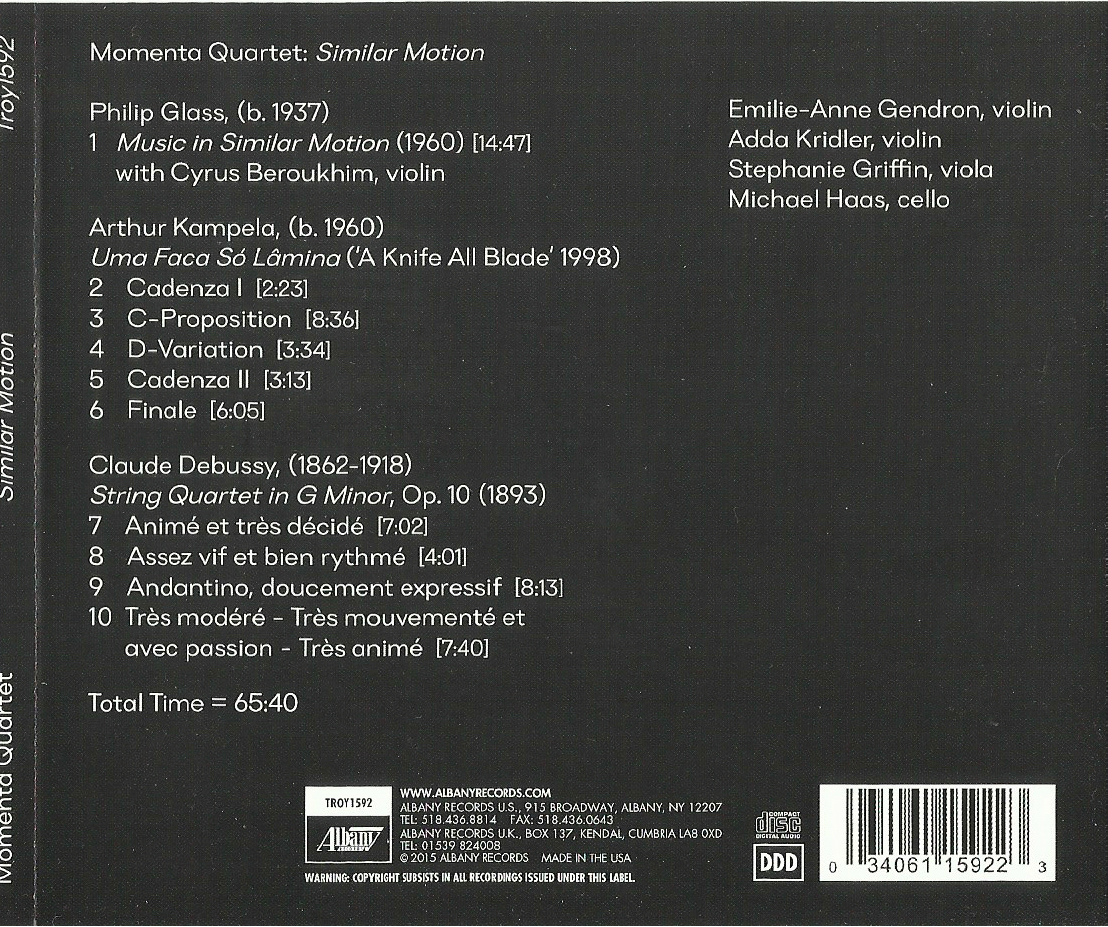Share This
Album at a Glance
Tags
Related Posts
- Music from America & Abroad for Oboe, Bassoon & Piano / John Dee, oboe; Timothy McGovern, bassoon; Cara Chowning, piano
- Carson Cooman: ‘In Beauty Walking’ - Orchestral Works / Leah Crane, soprano; Chloé Trevor, violin
- Joaquin Turina: Chamber Music for Strings and Piano / Lincoln Trio
- Vijay Iyer (composer, piano, electronics): Mutations
‘Similar Motion” - Works for String Quartet by Philip Glass, Arthur Kampela, and Claude Debussy / Momenta Quartet
Posted by Elaine Fine on Oct 18, 2015 in Contemporary, Modern | 0 comments
The Momenta Quartet, an ensemble in residence at Temple University in Philadelphia, specializes in music written by living composers. They have also received great acclaim for performances they have given of music written by composers of past generations and centuries. This beautifully engineered recording represents their debut for Albany Records, an acclaimed American label with a similarly vital role in the promulgation of new American music.
The CD takes its title from Philip Glass's 1969 composition "Music in Similar Motion," which begins their program. I would call this piece an example of minimalism in its most perfect form. "Music in Similar Motion" has 34 numbered melodic fragments, which are repeated as many times as the musicians decide to repeat them. Sometimes the fragments are played in unison, and sometimes they are played at parallel intervals of fourths, fifths, and octaves (perfect intervals). The five musicians (the instrumentation of the piece is flexible, so an additional violinist has joined the Momenta Quartet for this recording) play absolutely evenly, and in perfect rhythm. They continue doing so, without a break, for nearly 15 minutes. It takes extraordinary concentration to play repetitive material cleanly and evenly for any length of time, particularly if it induces a trance-like state in the people who are playing. Anyone who loves minimalist music should hear this recording.
Milton Babbitt was a self-proclaimed "maximalist" in a musical world where minimalism was growing increasingly popular. I would put Arthur Kampela (born in 1960) in Babbitt's "maximalist" category. In many ways his 1998 composition "Uma Faca Só Lâmina" ("A Knife All Blade") is exactly the opposite of the Glass piece. Kampela calls for a great variety of "extended techniques" from the string quartet, but he asks the musicians to go far beyond what might be called the standard repertoire of noises that can be made with wood, strings, and hair. The piece has three pages of specific performance notes, and notation in the score asking, for example, to "hit the wood below the neck with the little finger of the left hand while doing a left hand pizz." Kampela seems to ask the musicians to do everything possible with their instruments except to play with a conventional sound (he also asks them to vocalize, using popping consonants and hisses) offering a virtual lexicon of novel musical gestures and textures.
One would imagine that music like this would be chaotic and hard to understand, but the playing is so disciplined and so exciting that the huge range of textures and strange expressions fall readily on the ears and stimulate the imagination. I am extremely impressed by the precision of these musicians. That precision creates an unusual kind of excitement that keeps the listener engaged even when it is not possible to follow the music's organization.
The intended audience for this recording would be people interested in avant-garde music and/or minimalist music. People interested in the musical innovations of the later 20th and 21st centuries often fail to recognize the forward-thinking musicianship of Debussy, easily dismissing his orchestral music as romantic, pretty, or rhapsodic; the kind of thing that someone would use for background music in a nature documentary on television. Obliterating this mindset is precisely why I am delighted that the Momenta Quartet added the 1893 String Quartet by Claude Debussy to this program.
Debussy was a true musical visionary. This Quartet, which is organized in traditional forms, uses ostinato to such a large degree that it would certainly appeal to listeners who love minimalist music. The members of the Momenta Quartet, who play their Debussy with emotional economy and exquisite taste, make the connection between the Glass and the Debussy abundantly clear. The textures that Debussy calls for (without the need for performance notes) are always surprising, and though they are made using conventional techniques, they sound "new."
This debut recording of the Momenta Quartet (Emilie-Anne Gendron & Adda Kridler, violins; Stephanie Griffin, viola; Michael Haas, cello) offers three works by Philip Glass, Arthur Kampela, and Claude Debussy. On the surface, they may appear to have nothing in common, but hearing them in succession reveals unexpected connections. All three pieces are daring, energetic, and uncompromising. They generate unique, magical worlds from minimal materials. All three composers are innovators, making bold statements for their times that continue to affect the course of music today.
The Momenta Quartet is celebrated for its innovative programming, juxtaposing contemporary works from widely divergent aesthetics with great music from the past. Momenta has premiered more than 100 works and collaborated with more than 120 living composers while maintaining a deep commitment to the classical canon. They have appeared at prestigious venues throughout the United States and performed in international festivals around the world. Their recordings appear on the Centaur, Furious Artisans, and Albany Records labels.
Source: Albany Records
|
Philip Glass |
Philip Glass, composer Philip Morris Glass (born January 31, 1937) is an American composer. He is considered one of the most influential music makers of the late 20th century. His music is also often controversially described as minimal music, along with the work of the other “major minimalists” La Monte Young, Terry Riley and Steve Reich. Glass has distanced himself from the “minimalist” label, describing himself instead as a composer of “music with repetitive structures.” Though his early mature music shares much with what is normally called “minimalist”, he has since evolved stylistically. Currently, he describes himself as a “classicist”, pointing out that he is trained in harmony and counterpoint and studied such composers as Franz Schubert, Johann Sebastian Bach, and Wolfgang Amadeus Mozart with Nadia Boulanger. Glass has founded his namesake musical group, Philip Glass Ensemble, with which he still performs on keyboards, and has written operas, musical theatre works, ten symphonies, eleven concertos, solo works, chamber music including string quartets and instrumental sonatas, and film scores. Three of his film scores have been nominated for Academy Awards. Source: Wikipedia
|
 Arthur Kampela |
Arthur Kampela, composer Arthur Kampela (born 1960) is a Brazilian guitarist and composer, presently residing in New York where he is on the guitar faculty at Columbia University. His award-winning compositions are distinguished by a personal blend of Brazilian traditional and popular music styles with classical and contemporary compositional techniques, as well as for an innovative approach to classical guitar technique. Kampela holds a Doctorate in music composition from Columbia University where he studied with Mario Davidowsky and Fred Lerdahl. Previously, he studied with Ursula Mamlok at Manhattan School of Music (1992) and has received private lessons from British composer Brian Ferneyhough (1993). In Brazil (1986-8) he studied with the German composer Hans-Joachim Koellreutter. Source: Artist’s website |
 Claude Debussy |
Claude Debussy, composer Claude-Achille Debussy (22 August 1862 – 25 March 1918) was a French composer. Along with Maurice Ravel, he was one of the most prominent figures associated with Impressionist music, though he himself disliked the term when applied to his compositions. He was made Chevalier of the Legion of Honour in his native France in 1903. Debussy was among the most influential composers of the late 19th and early 20th centuries, and his use of non-traditional scales and chromaticism influenced many composers who followed. Debussy’s music is noted for its sensory content and frequent usage of atonality. The prominent French literary style of his period was known as Symbolism, and this movement directly inspired Debussy both as a composer and as an active cultural participant. Musically, Debussy was experimental from the outset, favoring dissonances and intervals that were not taught at the Academy. Like Georges Bizet, he was a brilliant pianist and an outstanding sight reader, who could have had a professional career had he so wished. Source: Wikipedia |
|
Momenta String Quartet |
Momenta String Quartet Momenta: the plural of momentum – four individuals in motion towards a common goal. This is the idea behind the Momenta Quartet, whose eclectic vision encompasses contemporary music of all aesthetic backgrounds alongside great music from the recent and distant past. Momenta has premiered over 100 works and collaborated with over 120 living composers and, in the words of The New Yorker’s Alex Ross, “few American players assume Haydn’s idiom with such ease.” The quartet came into being in November 2004, when violist Stephanie Griffin was invited to perform Mario Davidovsky’s String Trio for events celebrating Judaism and Culture at New York’s Symphony Space and Temple University in Philadelphia. The rehearsals and performances were so satisfying that the players decided to form a quartet. Deeply committed to the musical avant-garde of the developing world, Momenta has been the single most important advocate for the music of numerous international composers in this country. In addition to world premieres by Chong and Fernández, Momenta has premiered and championed the works of Tony Prabowo (Indonesia), Cergio Prudencio (Bolivia) and Hana Ajiashvili (Georgia.) Upcoming adventures include a project to perform and record all thirteen string quartets by Mexican microtonal maverick Julián Carrillo (1875-1965) over the next three years. Members: Emilie-Anne Gendron & Adda Kridler, violins. Stephanie Griffin, viola. Michael Haas, cello. Source: Artist’s website |
![]() About Elaine Fine
About Elaine Fine
Twitter •
| Thinking about purchasing this album?
Follow this link for more album details or to make the purchase. Buy it now |
“Not just recommended. Guaranteed.”
We stand behind every album featured on Expedition Audio. Our objective is to take the monetary risk out of music exploration. If you order this album from HBDirect.com and do not like it you can return it for a refund.
Momenta Quartet performs Stefan Wolpe: String Quartet (1969)







